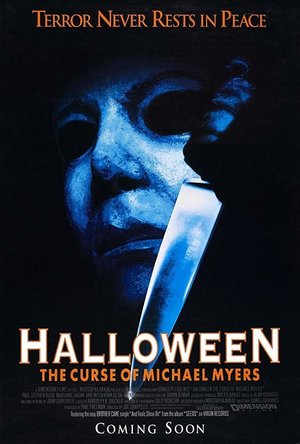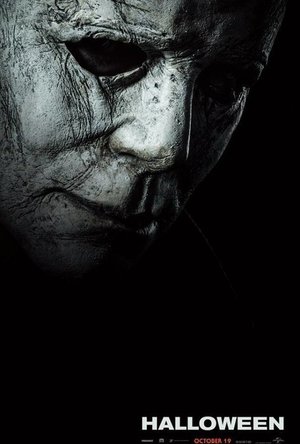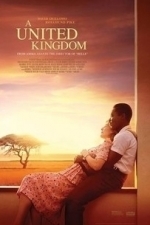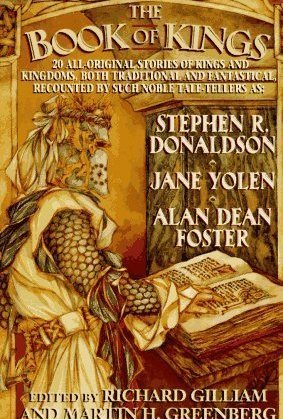Search
Search results
Jonathan Kellerman recommended The Complete Sherlock Holmes in Books (curated)
Kyera (8 KP) rated The Extraordinary Cases of Sherlock Holmes in Books
Feb 1, 2018
I may be good, but Sherlock Holmes is better. Sir Arthur Conan Doyle weaves unusual and fantastical tales about the globally beloved detective in this collection of stories. Each is short and can be devoured in less than an hour. They are some of his more famous short works and highly enjoyable.
Doyle paints a narrative through the eyes of Holmes' companion, Dr. Watson and makes the tale more accessible to the average reader. Holmes' sharp mannerisms and lofty thoughts would not be as intriguing if Watson's nobler sentiments and smoothing words did not soften him. Each mystery slowly unfolds before the reader's eyes and if their powers of deduction are keen, they may even discover some clues or Holmes' motives before they're expressly detailed.
The adventures of Sherlock Holmes and John Watson were beloved in their time and are now classics for a reason. This is a wonderful collection of stories and highly recommended to fans of detective stories, classic novels, or have never read a story about Sherlock Holmes before and wish to give them a shot. (You won't be disappointed.)
Doyle paints a narrative through the eyes of Holmes' companion, Dr. Watson and makes the tale more accessible to the average reader. Holmes' sharp mannerisms and lofty thoughts would not be as intriguing if Watson's nobler sentiments and smoothing words did not soften him. Each mystery slowly unfolds before the reader's eyes and if their powers of deduction are keen, they may even discover some clues or Holmes' motives before they're expressly detailed.
The adventures of Sherlock Holmes and John Watson were beloved in their time and are now classics for a reason. This is a wonderful collection of stories and highly recommended to fans of detective stories, classic novels, or have never read a story about Sherlock Holmes before and wish to give them a shot. (You won't be disappointed.)
KyleQ (267 KP) rated Halloween: The Curse of Michael Myers (1995) in Movies
Jul 19, 2020
Better then #5, but still flawed.
In a weird turn for the franchise, a cult has forced Michael Myers to impregnate Jamie Lloyd, in an attempt to end his bloodline he kills Jamie, but she hid the baby from him, the infant is found by Tommy Doyle (Paul Rudd in his introductory role), Doyle lives across the street from the former Myers house, now housing a new family of Strode's. Michael returns to Haddonfield, and death follows.
It's apparent that director Joe Chappelle is trying to harken back to John Carpenter's style of film-making. Focusing more on trying to create tension then fill the film with death scenes. Michael actually doesn't have as much screen time here. We return to him sneaking around in the shadows.
Mostly H6's weakness is in it's acting, they just fail to feel believable, thus ruining what suspense Chappelle created, then there's the weird plotline which will turn away some viewers.
This one also marks Donald Pleasence's last time as Loomis, it's sad but he's also a bit unnecessary at this point.
I enjoyed Halloween: The Curse of Michael Myers for what it was, I think if you're open to the strange plot you will too.
It's apparent that director Joe Chappelle is trying to harken back to John Carpenter's style of film-making. Focusing more on trying to create tension then fill the film with death scenes. Michael actually doesn't have as much screen time here. We return to him sneaking around in the shadows.
Mostly H6's weakness is in it's acting, they just fail to feel believable, thus ruining what suspense Chappelle created, then there's the weird plotline which will turn away some viewers.
This one also marks Donald Pleasence's last time as Loomis, it's sad but he's also a bit unnecessary at this point.
I enjoyed Halloween: The Curse of Michael Myers for what it was, I think if you're open to the strange plot you will too.
Scott Tostik (389 KP) rated Halloween (2018) in Movies
Nov 2, 2018
.....Fuckin comedians
Michael Myers is back.... And this is supposed to be what actually happened... 40 years later???
I'm sorry if any of you disagree with me... But this movie blew....
Don't get le wrong. I love the fact that Jamie Lee is back and more of a badass than i wpuld have ever expected.
But come on...
Denying the fact that almost 40 years worth of mythology happened... Thats a hard sell. Let's do some math as well.
You expect me to believe that Michael is wandering around at 61 years old, after being locked up for 40 years... And he's picking up 200 pound men one handed and crushing their windpipes???
I love the Halloween series of films. Even the Rov Zombie offerings... I love the fact that Rob gave us a back story. You found out why Michael was the way he was...
But this??? This was nothing more than two morons... And yes, I think Danny McBride is an idiot. And he should stick to Vice Principals and Eastbound and Down. And stay the fuck away from horror films.
He should've taken a hint from his lackluster and shitty preformance in Alien Covenant... And leave horror to the pros.
I'm sorry but the only person who should've carried on this franchise was John Carpenter himself... But even he knows that you shouldn't dip your pen in the company ink too many times.
Ignoring the mythology of the films and expecting die hard fans to believe that characters like Jamie Lloyd and Tommy Doyle didn't exist in the history is ludicrous.
Some people enjoyed the sequels and some people didnt. But expecting us to forget forty years of horror history???
Not on your life, comedian.
I'm sorry if any of you disagree with me... But this movie blew....
Don't get le wrong. I love the fact that Jamie Lee is back and more of a badass than i wpuld have ever expected.
But come on...
Denying the fact that almost 40 years worth of mythology happened... Thats a hard sell. Let's do some math as well.
You expect me to believe that Michael is wandering around at 61 years old, after being locked up for 40 years... And he's picking up 200 pound men one handed and crushing their windpipes???
I love the Halloween series of films. Even the Rov Zombie offerings... I love the fact that Rob gave us a back story. You found out why Michael was the way he was...
But this??? This was nothing more than two morons... And yes, I think Danny McBride is an idiot. And he should stick to Vice Principals and Eastbound and Down. And stay the fuck away from horror films.
He should've taken a hint from his lackluster and shitty preformance in Alien Covenant... And leave horror to the pros.
I'm sorry but the only person who should've carried on this franchise was John Carpenter himself... But even he knows that you shouldn't dip your pen in the company ink too many times.
Ignoring the mythology of the films and expecting die hard fans to believe that characters like Jamie Lloyd and Tommy Doyle didn't exist in the history is ludicrous.
Some people enjoyed the sequels and some people didnt. But expecting us to forget forty years of horror history???
Not on your life, comedian.
Bob Mann (459 KP) rated A United Kingdom (2017) in Movies
Sep 29, 2021
“In to Africa”.
I managed to miss this film when it was first shown at the end of 2016. And what a shame as it would have UNDOUBTEDLY made my “Films of the Year” list.
Directed by Amma Asante (“Belle”) this is the true tale of a real-life fairy story, featuring a handsome prince and his love, who can never be his princess thanks to the Machievellian schemings of court-do-gooders and bureaucrats.
The prince in this case is Seretse Kham (David Oyelowo, “Selma“) , heir to the throne of Bechuanaland (now Botswana), who meets and falls in love with a lowly white Lloyd’s of London clerk Ruth Williams (Rosamund Pike, “Gone Girl“, “The World’s End“). The plot has many parallels with that of another film from earlier this year: “Loving” with Ruth Negga and Joel Edgerton. As an inter-racial couple in 1947 this is taboo enough, but the fact that Kham is soon to be king in a country bordering the apartheid tinderkeg that is South Africa blows the affair up to be a diplomatic crisis.
Concern in the corridors of power for Prime Minister Atlee (Anton Lesser) being faced up to by the couple’s supporter – a young Anthony Wedgewood Benn (Jack Lowden).
Defying the officials he marries his true love, driving a wedge between both his own uncle (Vusi Kunene ) and sister (Terry Pheto) and making Ruth an outcast in both countries. As things turn from bad to worse, can true love conquer all their adversities?
Just everything about this film delights. Oyelowo and Pike – always a safe pair of hands – add real emotional depth to their roles. Their relationship feels natural and loving without either of them trying too hard. The estrangement of Ruth from her parents (particularly her father played by Nicholas Lyndhurst) is truly touching.
Another star turn is Harry Potter alumni Tom Felton, playing Rufus Lancaster – a weaselly and very unpleasant local official. I have a prediction…. that in 30 year’s time, the young Potter actor that will be the ‘Ian McKellen of his day’ (that is, a world recognized great actor… not necessarily gay!) will be Felton.
Sam McCurdy (“The Descent”) delivers cinematography of Africa that is vibrant (to be fair, for anyone lucky enough to visit Africa will know, cameras just love the place) and the John Barry-esque music by Patrick Doyle (“Murder on the Orient Express“) is pitch perfect for the mood.
When it says “Based on a true story” it means it: the real family.
A beautifully crafted film that older viewers will just love.
Directed by Amma Asante (“Belle”) this is the true tale of a real-life fairy story, featuring a handsome prince and his love, who can never be his princess thanks to the Machievellian schemings of court-do-gooders and bureaucrats.
The prince in this case is Seretse Kham (David Oyelowo, “Selma“) , heir to the throne of Bechuanaland (now Botswana), who meets and falls in love with a lowly white Lloyd’s of London clerk Ruth Williams (Rosamund Pike, “Gone Girl“, “The World’s End“). The plot has many parallels with that of another film from earlier this year: “Loving” with Ruth Negga and Joel Edgerton. As an inter-racial couple in 1947 this is taboo enough, but the fact that Kham is soon to be king in a country bordering the apartheid tinderkeg that is South Africa blows the affair up to be a diplomatic crisis.
Concern in the corridors of power for Prime Minister Atlee (Anton Lesser) being faced up to by the couple’s supporter – a young Anthony Wedgewood Benn (Jack Lowden).
Defying the officials he marries his true love, driving a wedge between both his own uncle (Vusi Kunene ) and sister (Terry Pheto) and making Ruth an outcast in both countries. As things turn from bad to worse, can true love conquer all their adversities?
Just everything about this film delights. Oyelowo and Pike – always a safe pair of hands – add real emotional depth to their roles. Their relationship feels natural and loving without either of them trying too hard. The estrangement of Ruth from her parents (particularly her father played by Nicholas Lyndhurst) is truly touching.
Another star turn is Harry Potter alumni Tom Felton, playing Rufus Lancaster – a weaselly and very unpleasant local official. I have a prediction…. that in 30 year’s time, the young Potter actor that will be the ‘Ian McKellen of his day’ (that is, a world recognized great actor… not necessarily gay!) will be Felton.
Sam McCurdy (“The Descent”) delivers cinematography of Africa that is vibrant (to be fair, for anyone lucky enough to visit Africa will know, cameras just love the place) and the John Barry-esque music by Patrick Doyle (“Murder on the Orient Express“) is pitch perfect for the mood.
When it says “Based on a true story” it means it: the real family.
A beautifully crafted film that older viewers will just love.
Mandy and G.D. Burkhead (26 KP) rated The Book of Kings in Books
May 20, 2018
Shelf Life – The Book of Kings Has a Few Gems and a Few Warts
Contains spoilers, click to show
Unlike other short story anthologies I could mention, this one wasn’t mostly horrible. Instead, the stories inside run the gamut from stupid to brilliant and from annoying to nothing special to fun and memorable. A little something for everyone, then.
So since I can’t review it with one blanket sentiment, let’s instead take a quick look at a handful of the 20 all-original stories inside. The following are the tales that most stood out to me during my reading, for better or worse.
“The Kiss” by Alan Dean Foster – A woman walking through a snowy city finds a frog who says he’s a prince, so she kisses him. He turns into a guy and stabs her to death.
Oh boy, we’re not off to a great start here. This story could have been told in a page or so and been an interesting twist on the old tale, but instead the author drew it out over three pages by choosing the absolute most pretentious choice of words for every damn sentence. The guy doesn’t stab the woman, his “knife describes a Gothic arc.” She doesn’t shout or whisper or ask what’s going on, she “expels a querrelous trauma.” It’s not snowing on her face, “trifles of ice as beautiful as they were capricious tickled her exposed cheeks, only to be turned into simulacra of tears as they were instantly metamorphosed by the bundled furnace of her body.”
Yes, really.
The sheer purpleness of this prose might be excused for a deliberately lofty and overwrought tale, but it absolutely does not fit a story about a girl getting shanked by a frog on the street. If the contrast between what’s happening and how it’s presented is supposed to seem absolutely ridiculous, then it’s a success. This reads more like a writing exercise for seeing how unbearably melodramatic you can tell a simple story that the author went ahead and published anyway. I only read it last night as of the time of this particular bit of review, but I still have a headache.
“Divine Right” by Nancy Holder – A king grieving for his recently passed daughter and only heir tries to figure out how to keep his legacy from dying out and eventually decides on a way to choose a successor, sealing his decision by making a pact with God.
I really liked this one, partly for the great characterization of the king via his priorities. He’s not a bastion of righteousness or a tyrannical despot. He might be a pretty decent ruler, or he might not, depending on your priorities and the angle from which you view him. Mostly he’s written to be believable for his position and time period, pride and failings and all.
But what really sealed this story for me was the ironic bent of the plot that I can’t really discuss in any more depth without spoiling it except to say that it definitely fit with the tone and left an appropriate message. So let’s just give it a thumbs up and leave it at that.
“In the Name of the King” by Judith Tarr – If you know the story of Hatshepsut, an Egyptian queen who ruled as Pharaoh, then this is an extra interesting story. It follows both Hatshepsut and her lover in the afterlife and the legacy they’re leaving behind after their deaths, in which they take a surprisingly active interest for dead people.
If you know your history, though, you know where this is going, and it’s very touching as it gets there. It’s also character-centric in a way that makes its dead cast members seem very much alive. This one’s a good contender for my favorite story in the whole anthology.
“Please to See the King” by Debra Doyle and James D. Macdonald – A small glimpse of about one evening each into the lives of two seemingly unrelated, seemingly unimportant men against the backdrop of the battles being fought over a vague and distant rebellion against a vague and distant crown.
To say more would be to spoil the story, which is short, sweet, and interesting. It gives you just enough details, and no more, that you can piece together a much deeper story with room left for speculation about who certain characters really were and what exactly just happened. I’ve spent more time thinking about how the ending may be interpreted than it took me to read it, which is a good sign of nuance done right.
“The Name of a King” by Diana L. Paxson – This’n c’n rightf’ly b’ put in w’ th’ other st’ries I woul’n’t oth’rwise b’ther t’ mention ‘cept fer th’ o’erwrought dialectic style o’ nearly all o’ th’ dialogue, whut c’n git on yer nerves right quick-like whene’er any’ne op’ns their mouths. An’ while I’m ‘ere, th’ settin’ w’s rife wi’ plen’y o’ hints at deeper d’tails whut was ne’er sufficien’ly delved into or whut impact’d th’ actu’l plot much. Felt like part o’ a fant’sy series whut I was ‘spected t’ b’ f’miliar wit’ but wasn’t, an’ whut di’n’t give me ’nuff t’ git f’miliar wit’ just fr’m this st’ry.
Oth’rwise, t’w’sn’t t’ b’d, I s’pose. Bit borin’.
“Coda: Working Stiff” by Mike Resnick and Nicholas A. DiChario – This one was just fun. Again trying not to give away any twists or revelations, this one follows a journalist interviewing a bus driver who used to be a big, famous king back in his heyday but is now content (or so he says) with his obscure life of working a simple job in the day and drinking in his spartan home at night.
Who this ex-king really is probably isn’t who you think it’s gonna be at first, but the story does still technically, and cheekily, fit in with the premise of the book overall. It reminds me very much of something Neil Gaiman might have written, or maybe Terry Pratchett if he’d decided to tackle the kingly premise from a more modern and realistic approach.
There are still 14 stories left in here, many of which are also good reads, or at least decent. In fact, looking back through it again, the only real dud that stands out to me is “The Kiss.” The weakest of what’s left are either adaptations of stories that didn’t really do it for me (“The Tale of Lady Ashburn” by John Gregory Betancourt) or weird original works that weren’t really memorable in what they set out to do (“A Parker House Roll” by Dean Wesley Smith).
Overall, The Book of Kings is a fun and interesting romp through a number of royal worlds, themes, and tones. As such, anyone who gives it a look will probably have the same general sentiment I did at the end, with a few things to like and a few to point to as examples of what doesn’t work for them. Me, I got a bit of the inspiration I was looking for and a few memorable tales out of it, so I’ll forgive the warts.
So since I can’t review it with one blanket sentiment, let’s instead take a quick look at a handful of the 20 all-original stories inside. The following are the tales that most stood out to me during my reading, for better or worse.
“The Kiss” by Alan Dean Foster – A woman walking through a snowy city finds a frog who says he’s a prince, so she kisses him. He turns into a guy and stabs her to death.
Oh boy, we’re not off to a great start here. This story could have been told in a page or so and been an interesting twist on the old tale, but instead the author drew it out over three pages by choosing the absolute most pretentious choice of words for every damn sentence. The guy doesn’t stab the woman, his “knife describes a Gothic arc.” She doesn’t shout or whisper or ask what’s going on, she “expels a querrelous trauma.” It’s not snowing on her face, “trifles of ice as beautiful as they were capricious tickled her exposed cheeks, only to be turned into simulacra of tears as they were instantly metamorphosed by the bundled furnace of her body.”
Yes, really.
The sheer purpleness of this prose might be excused for a deliberately lofty and overwrought tale, but it absolutely does not fit a story about a girl getting shanked by a frog on the street. If the contrast between what’s happening and how it’s presented is supposed to seem absolutely ridiculous, then it’s a success. This reads more like a writing exercise for seeing how unbearably melodramatic you can tell a simple story that the author went ahead and published anyway. I only read it last night as of the time of this particular bit of review, but I still have a headache.
“Divine Right” by Nancy Holder – A king grieving for his recently passed daughter and only heir tries to figure out how to keep his legacy from dying out and eventually decides on a way to choose a successor, sealing his decision by making a pact with God.
I really liked this one, partly for the great characterization of the king via his priorities. He’s not a bastion of righteousness or a tyrannical despot. He might be a pretty decent ruler, or he might not, depending on your priorities and the angle from which you view him. Mostly he’s written to be believable for his position and time period, pride and failings and all.
But what really sealed this story for me was the ironic bent of the plot that I can’t really discuss in any more depth without spoiling it except to say that it definitely fit with the tone and left an appropriate message. So let’s just give it a thumbs up and leave it at that.
“In the Name of the King” by Judith Tarr – If you know the story of Hatshepsut, an Egyptian queen who ruled as Pharaoh, then this is an extra interesting story. It follows both Hatshepsut and her lover in the afterlife and the legacy they’re leaving behind after their deaths, in which they take a surprisingly active interest for dead people.
If you know your history, though, you know where this is going, and it’s very touching as it gets there. It’s also character-centric in a way that makes its dead cast members seem very much alive. This one’s a good contender for my favorite story in the whole anthology.
“Please to See the King” by Debra Doyle and James D. Macdonald – A small glimpse of about one evening each into the lives of two seemingly unrelated, seemingly unimportant men against the backdrop of the battles being fought over a vague and distant rebellion against a vague and distant crown.
To say more would be to spoil the story, which is short, sweet, and interesting. It gives you just enough details, and no more, that you can piece together a much deeper story with room left for speculation about who certain characters really were and what exactly just happened. I’ve spent more time thinking about how the ending may be interpreted than it took me to read it, which is a good sign of nuance done right.
“The Name of a King” by Diana L. Paxson – This’n c’n rightf’ly b’ put in w’ th’ other st’ries I woul’n’t oth’rwise b’ther t’ mention ‘cept fer th’ o’erwrought dialectic style o’ nearly all o’ th’ dialogue, whut c’n git on yer nerves right quick-like whene’er any’ne op’ns their mouths. An’ while I’m ‘ere, th’ settin’ w’s rife wi’ plen’y o’ hints at deeper d’tails whut was ne’er sufficien’ly delved into or whut impact’d th’ actu’l plot much. Felt like part o’ a fant’sy series whut I was ‘spected t’ b’ f’miliar wit’ but wasn’t, an’ whut di’n’t give me ’nuff t’ git f’miliar wit’ just fr’m this st’ry.
Oth’rwise, t’w’sn’t t’ b’d, I s’pose. Bit borin’.
“Coda: Working Stiff” by Mike Resnick and Nicholas A. DiChario – This one was just fun. Again trying not to give away any twists or revelations, this one follows a journalist interviewing a bus driver who used to be a big, famous king back in his heyday but is now content (or so he says) with his obscure life of working a simple job in the day and drinking in his spartan home at night.
Who this ex-king really is probably isn’t who you think it’s gonna be at first, but the story does still technically, and cheekily, fit in with the premise of the book overall. It reminds me very much of something Neil Gaiman might have written, or maybe Terry Pratchett if he’d decided to tackle the kingly premise from a more modern and realistic approach.
There are still 14 stories left in here, many of which are also good reads, or at least decent. In fact, looking back through it again, the only real dud that stands out to me is “The Kiss.” The weakest of what’s left are either adaptations of stories that didn’t really do it for me (“The Tale of Lady Ashburn” by John Gregory Betancourt) or weird original works that weren’t really memorable in what they set out to do (“A Parker House Roll” by Dean Wesley Smith).
Overall, The Book of Kings is a fun and interesting romp through a number of royal worlds, themes, and tones. As such, anyone who gives it a look will probably have the same general sentiment I did at the end, with a few things to like and a few to point to as examples of what doesn’t work for them. Me, I got a bit of the inspiration I was looking for and a few memorable tales out of it, so I’ll forgive the warts.





